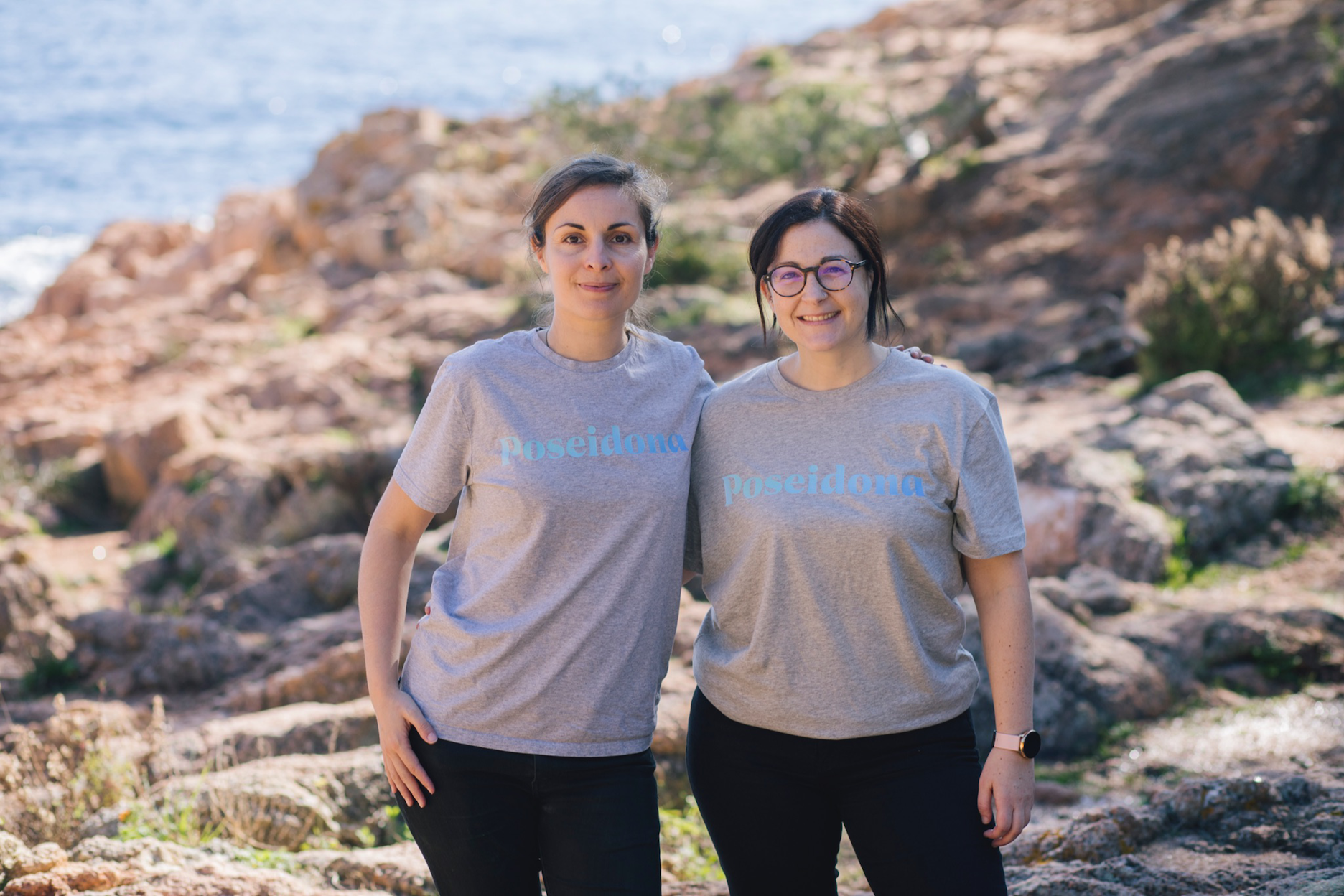Invasive algae is a problem all over the world. Different species of seaweed pose a threat to the oceanic environment by smothering and killing coral, which has an impact on fish and other marine life.
Living near the sea in Spain, Sònia Hurtado saw the effect that the large amounts of seaweed, known as Rugulopteryx okamurae, was having on the Mediterranean. It started in 2015 when a contamination happened in the south of France and spread all over the coastline.
After meeting María Cermeño, an expert in protein extraction from circular food materials, the pair decided to rid the ocean of this pest and turn it into protein ingredients for food. They founded Poseidona, a Barcelona-based developer of sustainable food technology, which uses that invasive seaweed and algal side-streams — the waste that agricultural producers generate — to make proteins. In this case, it’s a soy protein alternative.
The company utilizes enzymatic hydrolysis, a molecular isolation process often used to recycle plastic and produce ethanol, and combines that with other technologies. Its secret sauce is the way in which that is done and the combination of enzymes used to ensure a high-quality protein end product. They’re looking for nutritional factors and an overall good functionality of the protein, Hurtado said.
“We also have a project ongoing specifically caring for the organoleptics of the product, ensuring it won’t have any ‘spoiled seaweed’ flavor and it will have a good color,” she told TechCrunch. “The best part of using the side-streams, besides the low or null cost, is they are already concentrated in protein. But it’s challenging at the same time to ensure the protein is in good shape and we extract it all properly.”
Neither Cermeño nor Hurtado are strangers to this area: Cermeño has a doctorate in food biochemistry, and Hurtado was previously co-founder and chief scientific officer at Current Foods, which was previously known as Kuleana. The company made plant-based seafood and was acquired by the Wicked Kitchen in 2023.
Poseidona is not the only one using side-streams to make food. There’s also Berlin-based Pacifico Biolabs, which announced $3.3 million in pre-seed funding last month for its fermentation process to make alternative seafood.

Poseidona founders Sònia Hurtado (left) and Maria Cermeño. Image Credits: Poseidona
What’s pushed side-streams more into the public realm is that food scientists are recognizing the need to find new protein sources, Hurtado said. At the same time, those concerned with food manufacturing’s effect on the environment see a lot of waste and side-streams being produced.
“For example, in the skin of rotten tomatoes, there are a lot of good colors and molecules that we could use,” Hurtado said. “We are becoming an overpopulated world, and at some point we need to make the most of all the resources that we have because we are going to achieve a point where there won’t be any more resources.”
Poseidona’s first product is a soy alternative protein concentrate. Companies often need to experiment with colors and flavors of the ingredients. With initial prototypes, however, Hurtado and Cermeño found that the concentrate had an umami, or mushroom-like, taste and somewhat of a reddish color. Hurtado said they were going for more of a color similar to soy, but for now, they are going with the natural color.
If everything goes well, Hurtado expects to launch the concentrate at the end of 2024. Helping to move the R&D along is a pre-seed funding round of €1.1 million ($1.19 million), led by Faber, one of Europe’s leading venture capital funds specialized in climate tech and the blue economy. The round also includes Dozen Investments, Sprout & About, ProVeg International and WA4STEAM (Women for STEAM).
Meanwhile, there are specific government regulations on how to manipulate and collect the algae that Poseidona is using for its products. A decline in the fish population, leading to less work for fishermen, and an idea from Hurtado’s daughter inspired Hurtado and Cermeño to work on a program that would have fishermen collect seaweed as another revenue stream. They plan to work on that in the coming years.
Poseidona also has plans to use other kinds of invasive seaweeds — for example, Sargassum — which Hurtado said is affecting the Pacific Ocean.
“Our goal is to be able to use a variety of macroalgae species, using our proprietary methodology, to develop great proteins at an affordable cost that will be able to compete with the mainstream plant-based proteins of soy and pea protein, that currently have no competition at all,” Hurtado said. “We’ll ultimately be able to be in cost parity with soy protein.”



![[CITYPNG.COM]White Google Play PlayStore Logo – 1500×1500](https://startupnews.fyi/wp-content/uploads/2025/08/CITYPNG.COMWhite-Google-Play-PlayStore-Logo-1500x1500-1-630x630.png)